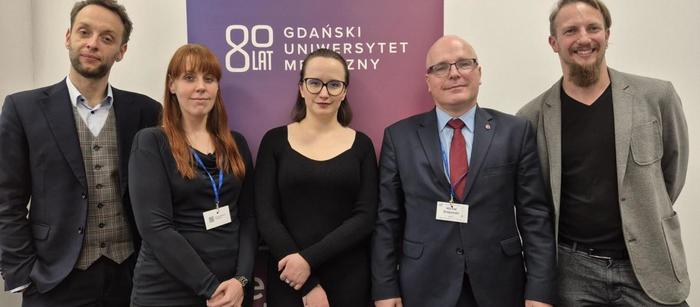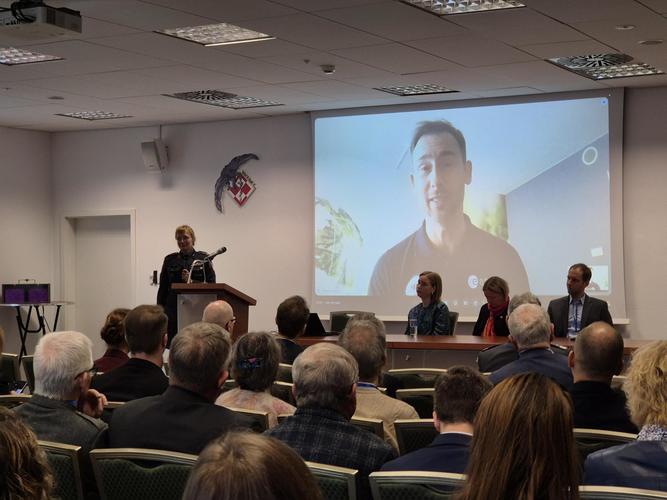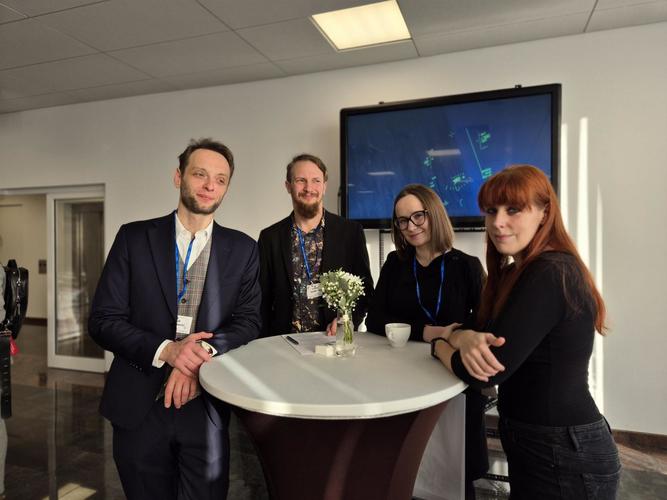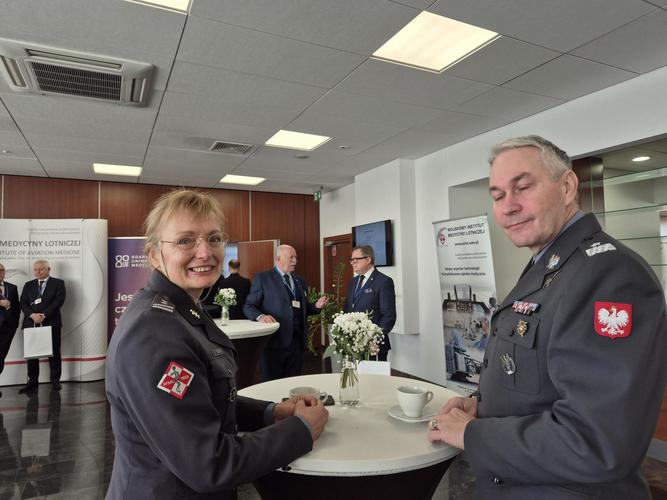First space medicine conference in Poland – the MUG co-organiser of a groundbreaking event
20.11.2025

The first space medicine conference in Poland, organised by Gdański Uniwersytet Medyczny and the Wojskowy Instytut Medycyny Lotniczej, was held on 13–14 November 2025 in Warsaw. The event gathered a broad group of representatives from science, medicine, technology, and state institutions, enabling the integration of the space community in Poland and showcasing its scale, potential, and ambitions. The event took place under the patronage of the Ministry of Science, Ministry of Health, Ministry of National Defence, and the Polish Space Agency (POLSA).

Specialists working in diverse fields—from clinical medicine and molecular biology to engineering, aviation, and space technologies—met in Warsaw. This diversity quickly turned the breaks between sessions into intense networking, and discussions in the corridors led to early declarations of joint projects. Instead of formal distance, a sense prevailed that a community eager to collaborate was emerging.
The conference opened with a lecture by Prof. Krzysztof Klukowski, who spoke about the preparation for the spaceflight of Poland’s first astronaut, General Mirosław Hermaszewski. This was a unique opportunity to hear the testimony of someone who witnessed two Polish space missions separated by 47 years. Prof. Klukowski took the audience both into the past, showing medical and training procedures of that time, and highlighted the enormous advancements made in space medicine from the early flights to current European Space Agency (ESA) standards.
During the conference, there was also a live connection with Sławosz Uznański-Wiśniewski, Ph.D. who spoke about his stay on the International Space Station (ISS). His direct account made it clear that space mission preparations involve much more than technical issues. The focus is on the human body and its ability to function in such extreme conditions. The medical team responsible for astronaut preparation must consider adaptation to microgravity, immune system functioning, metabolism, psychological aspects, and the need for constant health monitoring before launch, during the mission, and after return to Earth.

The international character of the event was emphasised further by speeches from foreign experts. Zuzanna Paśko from the European Space Agency outlined ESA’s priorities in astronaut health and highlighted the growing role of new member states in medical projects. Bonnie Posselt from the UK presented her country’s experience in building space medicine infrastructures, while Veronika Puisa from ESA introduced the tasks of the Medical Board, responsible for astronaut health standards and mission risk assessment. Particular significance was given to the perspective of Karolina Twardowska, a physician on the medical team caring for Dr Uznański-Wiśniewski during his stay in Cologne, where he underwent detailed examinations at ESA following his return from the ISS. Together, these speakers painted a picture of an international environment in which Poland can play an increasingly important role, especially thanks to expertise and infrastructure developed at WIML and the MUG.
The conference demonstrated that space medicine is not only about flights beyond Earth. It is a field with great importance on Earth too: in patient rehabilitation, chronic disease diagnostics, and using technologies and data from space missions for healthcare here and now. As Dr. Habil. Jakub Mieczkowski, Assoc. Prof., noted: Space medicine is not limited only to outer space; we can also draw on it on Earth, especially in places where medical resources and infrastructure are scarce.

Thanks to the event, Polish scientists interested in space medicine met on such a large scale for the first time, started discussing joint projects, grants, partnerships with ESA and POLSA, as well as education for a new generation of scientists and engineers. Poland is beginning to be viewed as a country that not only participates in global space exploration but actively shapes it. An important element of this process is the establishment of the Polskie Towarzystwo Astromedyczne, chaired by Lieutenant Colonel Magdalena Kozak, a physician. The Society’s goal is the promotion of space medicine, supporting research, and building bridges with business, says Lieutenant Colonel Kozak. However, the successful realisation of these plans largely depends on a stable and adequate Polish contribution to ESA, which determines access to programmes, grants, and infrastructure.

At the conference, attendees also heard an overview of developing space medicine technologies in a panel led by Captain Daria Sałacińska. Regarding technology, mention should be made of a patent application originating in Gdańsk from Prof. Mieczkowski’s research group related to genetic markers of radiation exposure (including cosmic radiation). This shows that Polish scientists do not only observe phenomena but also design and implement clinically applicable solutions. A complementary ecosystem is forming in Poland: space technologies are developed, among others, at the AGH University of Krakow and the Gdańsk University of Technology (engineering systems, data analytics, and image processing), while the pillars of space medicine are built by the Medical University of Gdańsk and the Military Institute of Aviation Medicine. A growing student community interested in this subject at the MUG and WIML provides a natural talent pool for future projects.
Photo: private archive